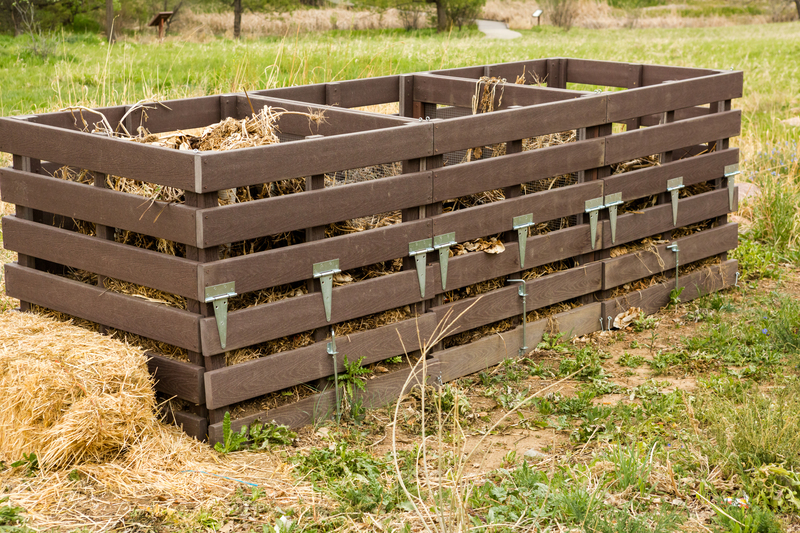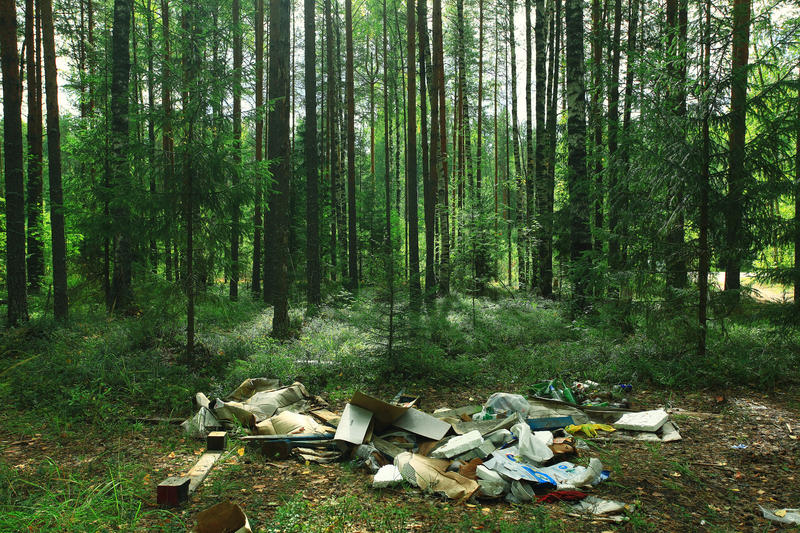Unburden Your Mind: Stress Relief Through De-cluttering
Feeling overwhelmed by the chaos of daily life? The secret to cultivating a peaceful, stress-free mind may be waiting right within your living environment. Discover how de-cluttering can be your powerful, transformative tool for genuine stress relief.
Understanding the Link Between Clutter and Mental Stress
In today's fast-paced world, mental overload is more common than ever. We juggle work responsibilities, personal relationships, and digital distractions, all of which can leave us feeling anxious and burned out. What many of us overlook is the significant role our physical environment plays in our mental well-being.
Studies have shown that cluttered spaces are often linked to elevated stress levels, decreased focus, and even feelings of guilt or embarrassment. Our home environment is an outward expression of our internal world. By de-cluttering, we not only clear away physical mess but also free our minds to experience greater relaxation, mental clarity, and emotional balance.
What is Clutter?
- Excess items that no longer serve a purpose
- Unorganized belongings without a designated place
- Accumulation of sentimental objects creating emotional baggage
- Unused clothes, papers, or miscellaneous household goods
Clutter isn't just what we see. It's also what we feel--the heaviness and anxiety that comes from disorganization.

The Psychological Impact of Clutter
Scientific research supports that living in a disorganized environment can cause stress hormones like cortisol to spike. When you're surrounded by mess and chaos, your brain is constantly stimulated by visual and mental distractions, making it harder to relax or concentrate.
Clutter and Anxiety: The Science
- Clutter increases sensory overload, leading to mental exhaustion.
- It impairs creative thinking and problem-solving abilities.
- Clutter can strain relationships and impact self-esteem.
Harvard Medical School reports that organization and simplicity can have lasting calming effects, acting as a powerful tool for stress management and mental purification.
Decluttering Techniques for Stress Relief
Embarking on a journey to a clutter-free life doesn't have to feel overwhelming. With the right strategies, stress relief through decluttering is achievable and even enjoyable. Below are proven steps and creative tips to help you regain control--both of your space and your peace of mind.
1. The Room-by-Room Approach
- Start Small: Begin with a single room or even a small area, such as a closet or junk drawer. Gain momentum by accomplishing quick wins.
- Set Time Limits: Declutter in 15-30 minute intervals to prevent burnout.
- Divide and Conquer: Tackle one category at a time: clothes, books, kitchenware, or paperwork.
2. The Four-Box Method
- Keep: Items you use regularly or that bring you joy.
- Donate: Useful items you no longer need.
- Recycle: Things made of paper, glass, or plastics.
- Toss: Broken, expired, or useless items.
3. KonMari Method
Inspired by Marie Kondo, this method invites you to assess whether each item "sparks joy." If not, thank it and let it go. This intentional release creates room for positivity and mental clarity.
4. The Minimalist Mindset
Embrace a minimalist lifestyle by keeping only what truly matters. Minimalism reduces decision fatigue, making daily life simpler and less stressful.
Mental Benefits of a Clutter-Free Space
The advantages of decluttering your home extend beyond aesthetics. Here are key emotional and psychological benefits:
- Enhanced Focus: Clear spaces foster sharper concentration and productive work habits.
- Reduced Stress: A tidy environment soothes the mind, decreases anxiety, and lowers stress levels.
- Improved Mood: Cleanliness naturally uplifts mood and encourages positive thinking.
- Greater Emotional Resilience: Letting go of unnecessary items can provide closure and foster emotional freedom.
- Boosted Self-Esteem: Successfully organizing your space brings a sense of accomplishment and pride.
How To Start Decluttering When Overwhelmed
It's common to feel paralyzed when faced with a significant mess. Here's how to move past the mental block and start the journey toward a lighter, more peaceful mind.
- Visualize Your Goal: Imagine your space as you want it to be--organised, bright, and peaceful.
- Make a List: Outline target areas to de-clutter and break them down into manageable sections.
- Schedule Decluttering Times: Treat these periods as appointments to ensure consistency.
- Recruit Help: Enlist a family member, friend, or professional organizer for motivation and support.
- Cultivate Patience: Remember that meaningful change takes time and gradual effort.
Decluttering Digital Spaces: A Modern Necessity
In addition to our physical surroundings, digital clutter--like overflowing inboxes, desktop icons, or excessive notifications--can amplify stress and harm productivity.
- Unsubscribe from unused email lists.
- Organize files into clearly labeled folders.
- Delete outdated apps, documents, and photos.
- Set boundaries for screen time and notifications.
By de-cluttering both physical and digital spaces, you holistically reduce stressors and create a more serene life.
How Decluttering Cultivates Mindfulness
Decluttering and stress relief are deeply tied to the principles of mindfulness. Organizing your space is an act of self-care that encourages you to live in the present moment, make conscious choices, and let go of the past.
- Intentional Living: Be mindful in deciding which items add true value to your life.
- Gratitude: Express thankfulness for the space, utility, and joy the remaining items offer.
- Peaceful Routine: Develop daily or weekly tidying practices to maintain a sense of order and mindfulness.
Decluttering Stories: Real-Life Transformations
Many people have experienced dramatic mental shifts after making the decision to de-clutter. Their stories inspire us to take action and enjoy the freedom that simplicity brings.
Case Study #1: Susan's Living Room Revival
Susan, a busy working mother, felt anxious every time she walked into her crowded living room. By systematically de-cluttering, selling unused furniture, and organizing toys, she discovered her entire family became more relaxed and connected. "Our living room is finally a space where we can unwind together," Susan shares.
Case Study #2: Mark's Digital Detox
Mark struggled with constant digital distractions. By sorting and deleting thousands of old emails, streamlining his home screen, and turning off non-essential notifications, he experienced fewer headaches and improved focus. "Decluttering my devices had almost instant effects on my mental clarity," he notes.
Common Decluttering Challenges--and Solutions
- Sentimental Attachments:
*Solution:* Take photos of items before letting go, or choose to keep only one or two meaningful mementos. - Time Constraints:
*Solution:* Consistently set aside small increments of time--progress adds up quickly. - Fear of Needing Items Again:
*Solution:* If you haven't used it in the last year, chances are you never will. Trust yourself!
Sustainable Decluttering: Maintaining a Clutter-Free Mind
Sustainable organization is the key to lasting stress relief. After an initial deep de-clutter, integrate these habits to keep your mind and environment clear:
- One-In-One-Out: Whenever you bring something new home, let go of something old.
- Daily Tidy: Spend 10 minutes each night restoring order to your most-used spaces.
- Regular Review: Re-assess items every season or during key life transitions.
- Mindful Consumption: Be intentional with new purchases--will it truly add value?
Decluttering for Special Populations
For Busy Parents
- Involve children in sorting and donating toys.
- Create simple systems for schoolwork and activities.
For Seniors
- Take extra care with heirlooms--decide what to pass on now.
- Prioritize safety and accessibility in home arrangements.
For Small Spaces
- Use vertical storage and multi-purpose furniture.
- Winnow down kitchen items, linens, and decor.
Expert Tips: Maximizing Your Decluttering Success
- Set Clear Goals: Write down your motivation for decluttering--refer to it when you feel stuck.
- Envision the End Result: Use inspiration from magazines, websites, or social media to visualize your goal.
- Reward Progress: Celebrate milestones with a favorite treat, a relaxing bath, or a fun outing.
- Practice Self-Compassion: It's normal to feel emotional during this process. Be patient and forgiving with yourself.

Resources and Tools for Effective Decluttering
- Donation centers and charities
- Online selling platforms
- Professional organizers and local decluttering workshops
- Decluttering apps for digital cleanups
- Books and guides on minimalism or organization
Conclusion: Start Your Journey to a Calmer, Happier Mind
Taking the first steps toward stress relief through de-cluttering can seem daunting, but the rewards are immense. A clutter-free environment paves the way to a more serene mind, improved focus, and a lighter emotional state.
Remember, decluttering is not a one-time event, but an ongoing journey of self-discovery, mindfulness, and growth. Whether you're starting with a single drawer or reinventing your entire home, each item you let go of frees up space for what matters most.
Your mental peace awaits--embrace the power of de-cluttering, and watch your stress melt away.
Need an extra push? Start now. Choose one small area, set your timer for 10 minutes, and experience the mental relief of creating space today!